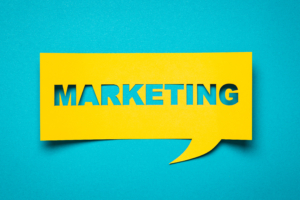Cunningly Good Guide to the Marketing Approach
Being responsible for the commercial income of an entire business can feel overwhelming.
Effective marketers break down this complexity into manageable parts using a set of tools and processes. This ensures nothing is overlooked.
In this cunningly good guide, we’ll introduce you to the essential aspects of building a marketing strategy and plan. These include the Marketing Mix, Promotional Mix and Product Lifecycle.
The Marketing Mix: The Foundation of Your Marketing Strategy
The marketing mix is a fundamental framework used by marketers to develop comprehensive marketing strategies. Known as the “7Ps,” (and sometimes the 4Ps, the 5Ps but not the Black Eyed Peas!!) the marketing mix encompasses seven critical elements: Product, Price, Place, Promotion, People, Process, and Physical Evidence.
- Product
The product aspect of the marketing mix involves the goods or services your business offers. It’s crucial to develop products that meet customer needs and have a unique selling point (USP) to stand out in the market.
Seth Godin, a renowned author and business thinker, advises, “Don’t find customers for your product. Find products for your customers.”
- Price
Pricing strategies must balance competitiveness and profitability. A product’s price should reflect what customers are willing to pay while ensuring the business remains profitable.
Jeff Bezos, founder of Amazon, once said, “Lowering prices is easy. Being able to afford lower prices is hard.”
- Place
The place element refers to the distribution channels through which customers can purchase your product. It’s essential to ensure these channels are convenient and effective.
Reid Hoffman, co-founder of LinkedIn, emphasises, “Product is important, but having great product distribution is more important.”
- Promotion
Promotion involves all communication methods used to raise awareness and persuade customers. It includes advertising, public relations, sales promotions, and more (and we can help with the promotional aspects of marketing – just give us a call!).
Henry Ford, founder of the Ford Motor Company, famously stated, “Stopping advertising to save money is like stopping your watch to save time.”
- People
Zendesk, a customer service software company, notes, “After more than one bad experience, around 80% of consumers say they would rather do business with a competitor.” Employees play a crucial role in customer satisfaction. They must be well-trained and motivated to provide excellent customer service.
- Process
The process element focuses on the entire customer experience, ensuring consistency and exceeding expectations across all touchpoints.
Steve Jobs, founder of Apple, believed, “You’ve got to start with the customer experience and work back toward technology, not the other way around.”
- Physical Evidence
Physical evidence includes all tangible aspects that help customers understand and trust your product, such as packaging, testimonials, and reviews.
Steve Jobs also said, “Packaging can be theatre, it can create a story.”
The Promotional Mix: Communicating Your Value
The promotional mix is a set of tools used to communicate the benefits of your products or services effectively. It includes advertising, public relations, sales promotions, direct marketing, personal selling, and digital content marketing. Each tool plays a vital role in reaching and persuading your target audience.
- Advertising
Advertising aims to inform, persuade, and reinforce brand values. Consistency and regularity are key, as research shows people need to see an advertisement multiple times before it resonates.
- Public Relations
Public relations (PR) involves managing your business’s reputation by engaging with media and influencers. Unlike advertising, PR is not directly paid for but can be highly cost-effective in maintaining a positive image.
- Sales Promotion
Sales promotions are short-term incentives designed to boost sales. They can help shift old stock, counteract competitor promotions, launch new products, and encourage bulk buying.
- Direct Marketing
Direct marketing targets specific customer groups through personalized communications. It includes catalogues, mailshots, and email marketing, offering flexibility and measurable results.
- Personal Selling
Personal selling involves direct interaction with potential customers, making it highly effective in building relationships and understanding customer needs, especially in B2B environments.
- Digital Content Marketing
Digital content marketing covers all online content, including websites, blogs, social media posts, videos, and podcasts. It’s essential for keeping your audience engaged and informed.
Understanding the Product Lifecycle
The Product Lifecycle describes the stages a product goes through from development to decline. Understanding these stages helps businesses make informed decisions on marketing investments and strategies.
- Research & Development (R&D) Phase
During R&D, the product is developed and tested for market viability. Feedback from testing helps refine the product before launch.
- Introduction Phase
The product is launched, and awareness is built through high-reach marketing campaigns. Early adopters play a crucial role in this phase.
- Growth Phase
As awareness increases, sales grow rapidly. Marketing focuses on branding, adding distribution channels, and enhancing customer service.
- Maturity Phase
Sales peak, and the focus shifts to product differentiation. This phase is the most profitable, with reduced advertising costs and high demand.
- Decline Phase
Sales decrease due to competition or changing customer needs. Extension strategies, such as product differentiation, price promotion, and rebranding, can prolong the product’s lifecycle.
Building a successful marketing strategy involves understanding and implementing the marketing mix, promotional mix, and product lifecycle. By focusing on these key areas, businesses can effectively reach their target audience, meet customer needs, and drive growth.
If you’re looking for expert marketing services to help develop your marketing, we’re here to help. The Cunningly Good Group has more than two decades of experience in supporting some of Scotland’s best-known brands as their marketing agency.
If you would like to find out more about our services, which include marketing strategy, communications, graphic design and website design, please visit our website www.wearecunninglygood.com or give us a call on 01738 658187.





